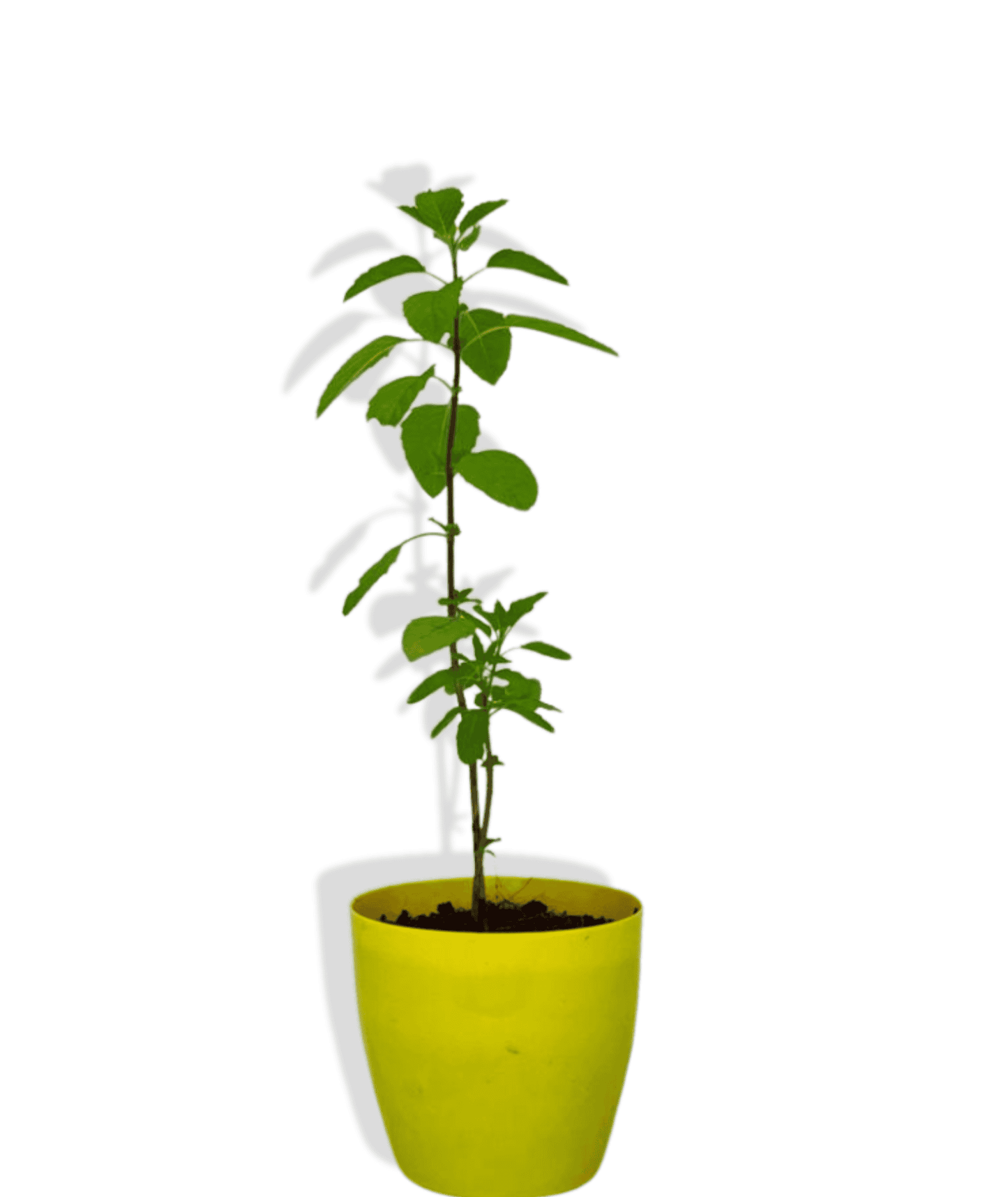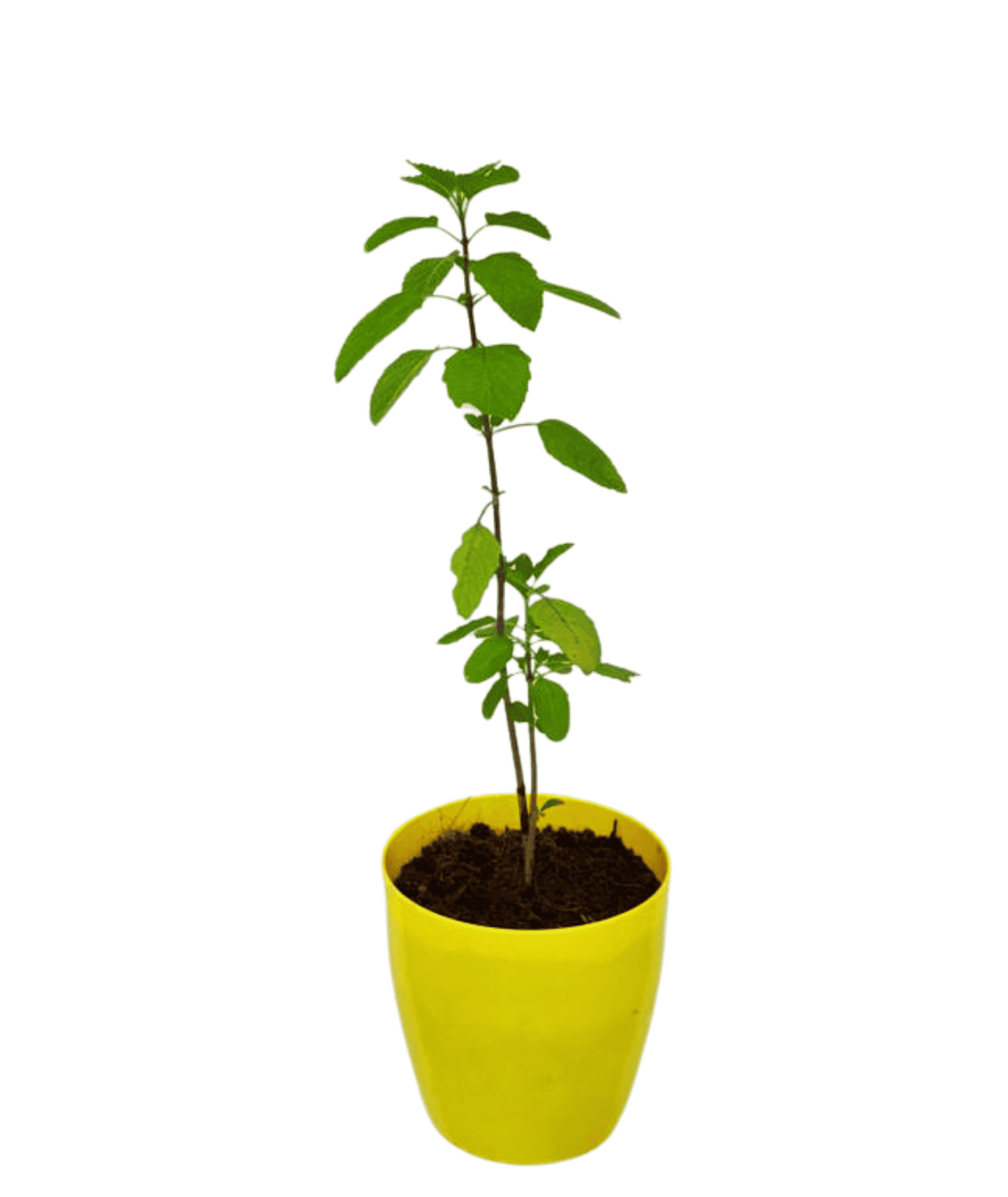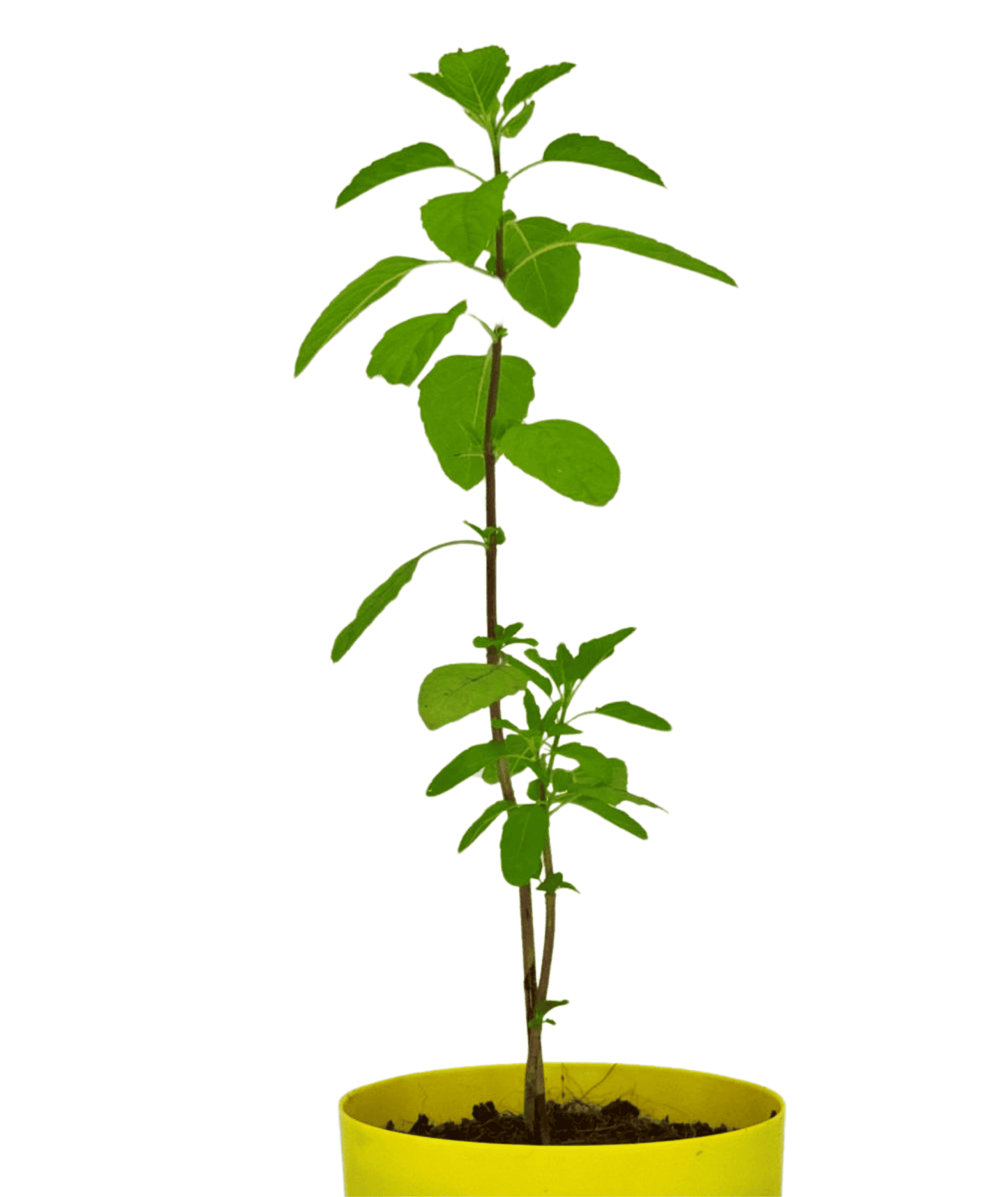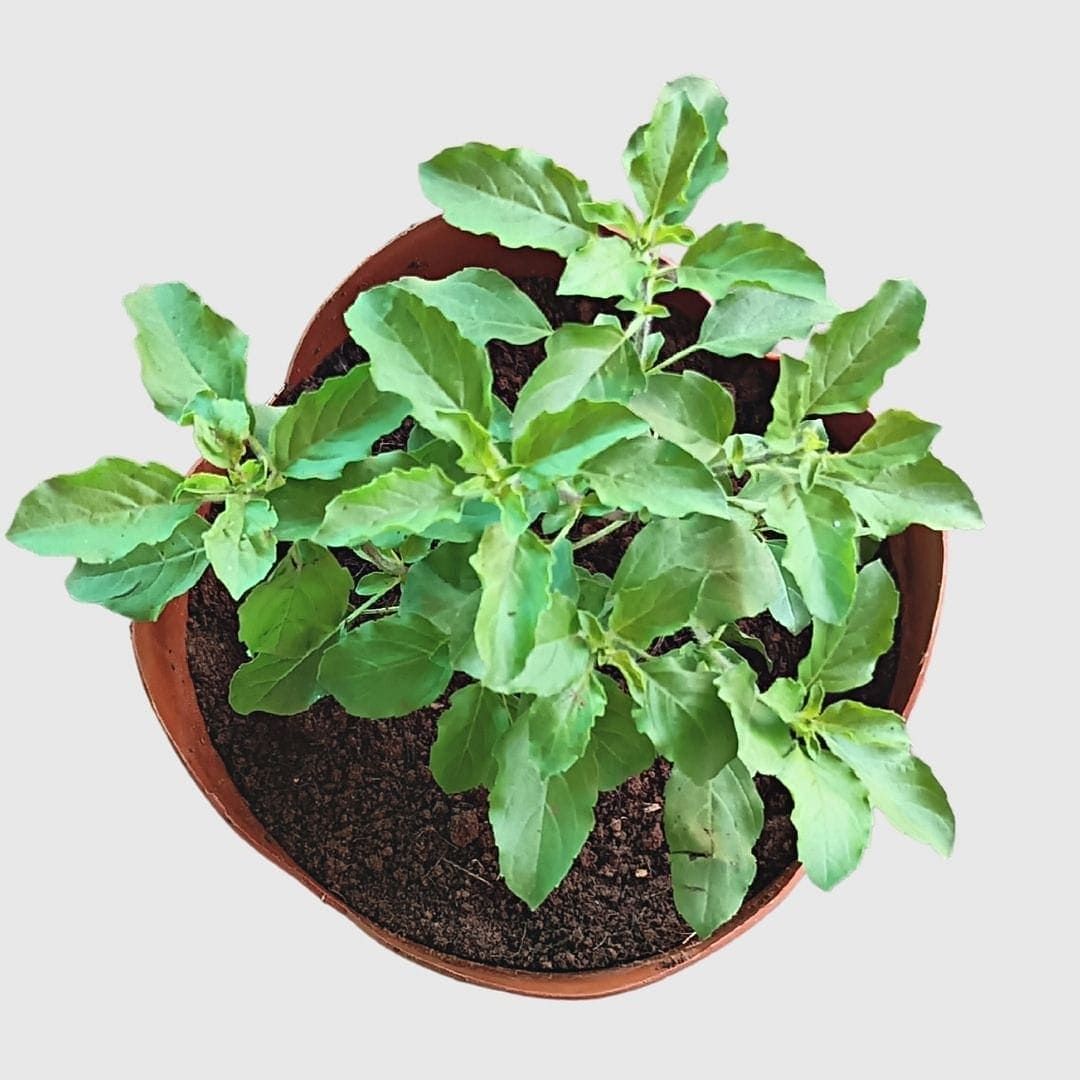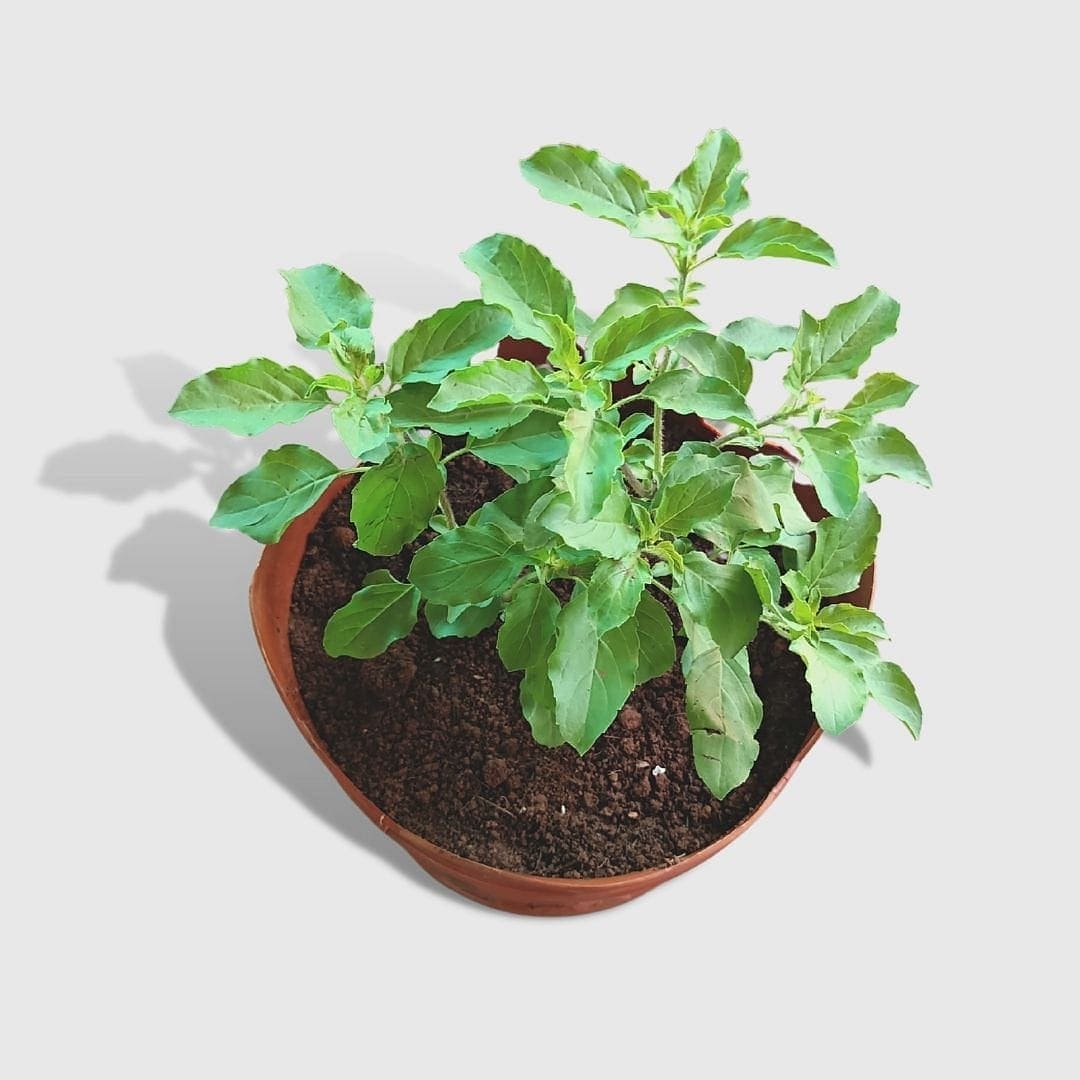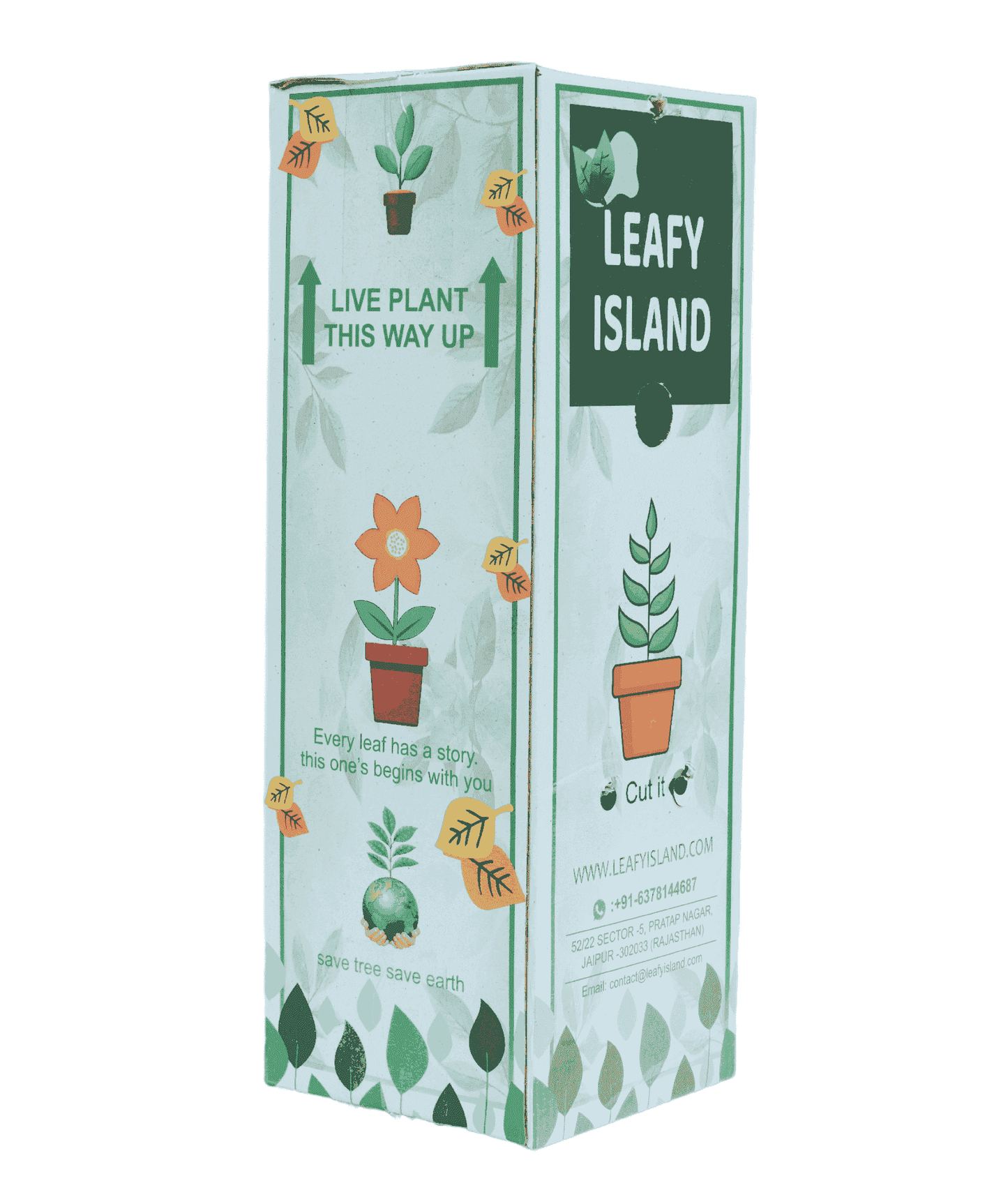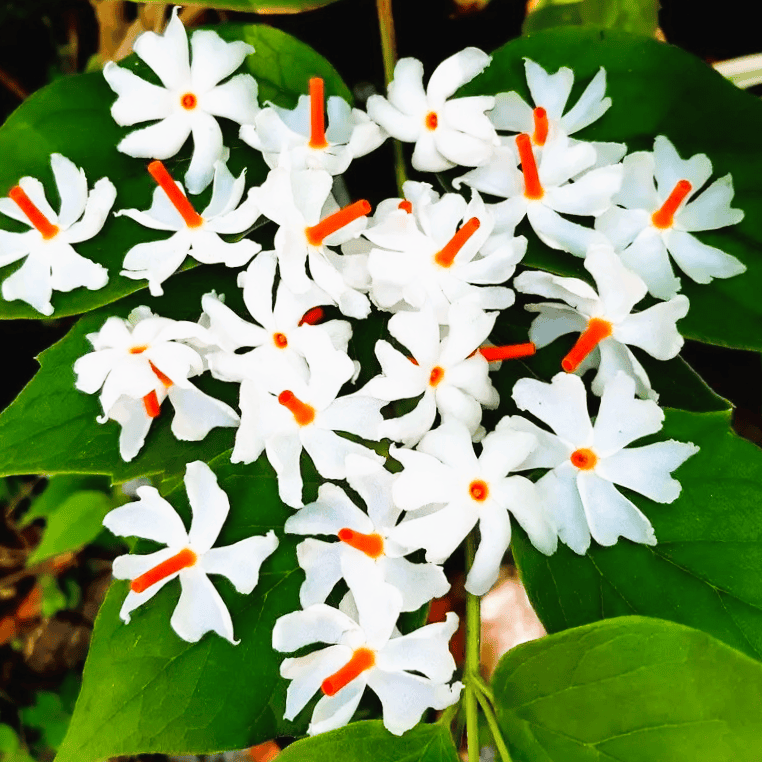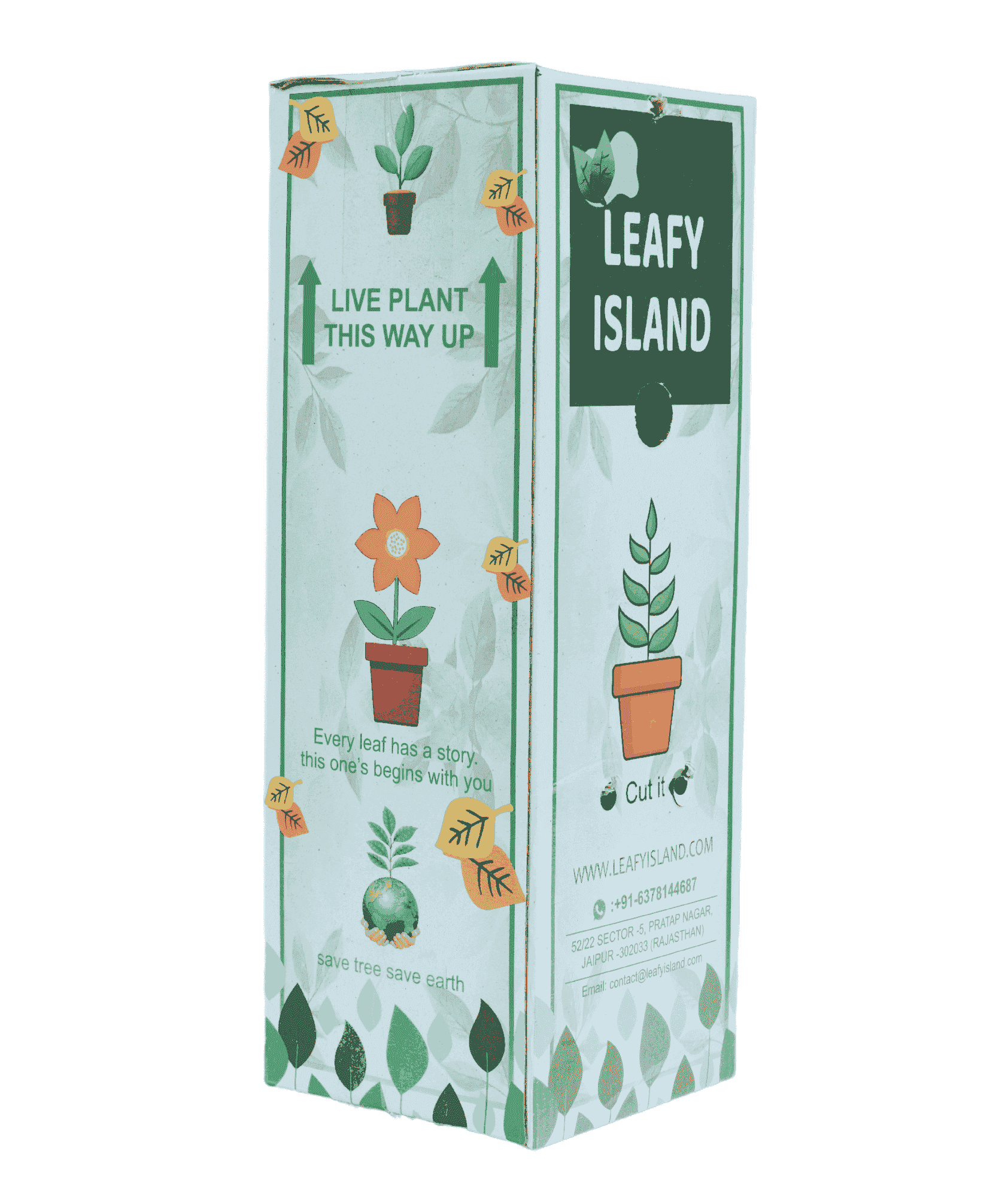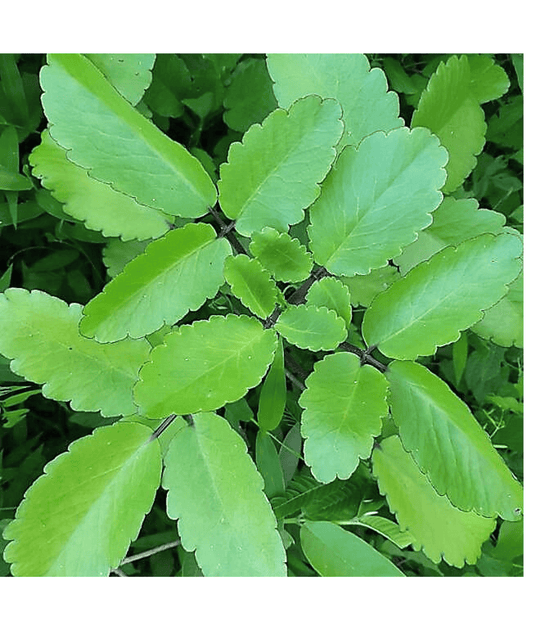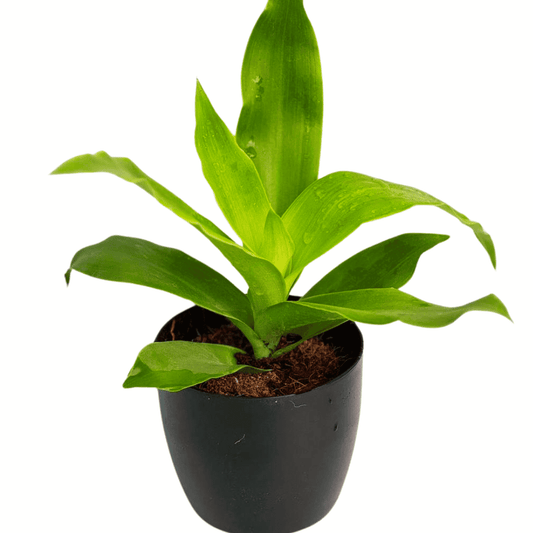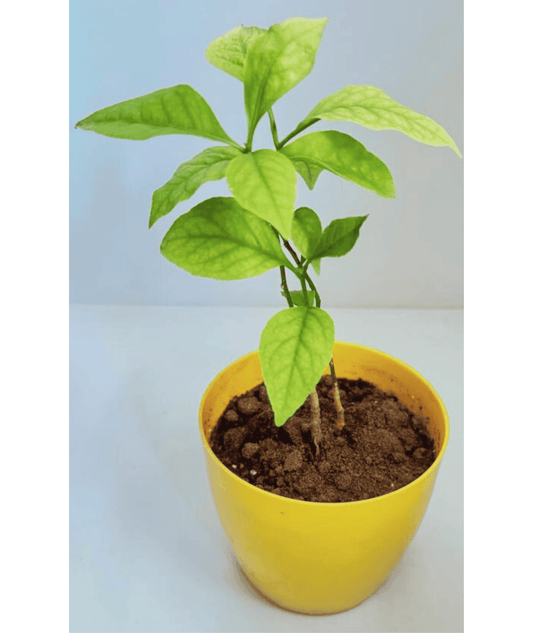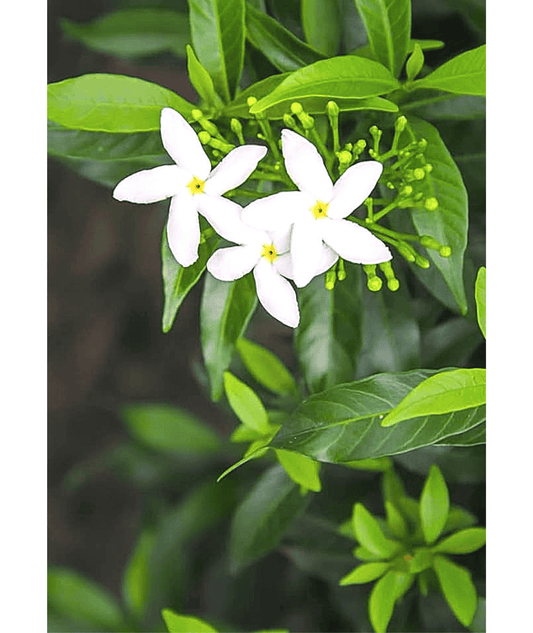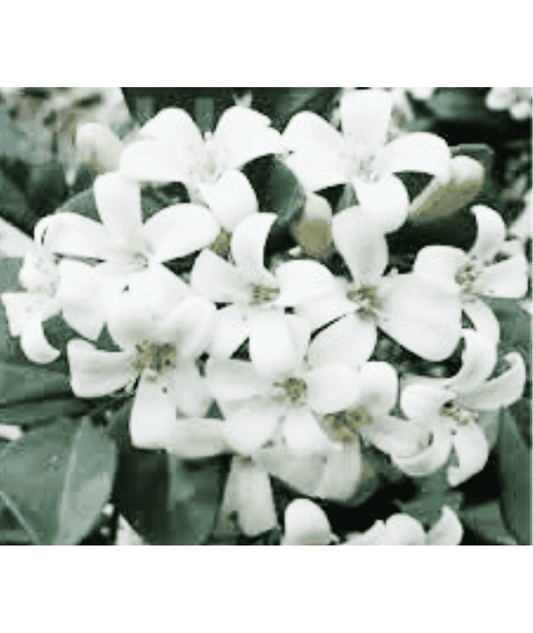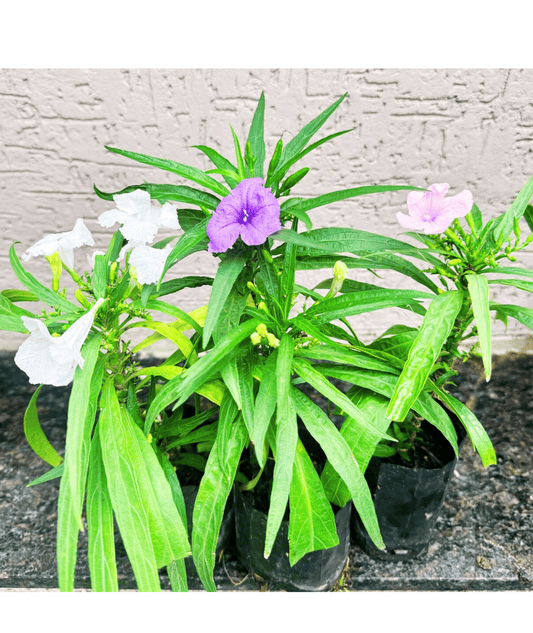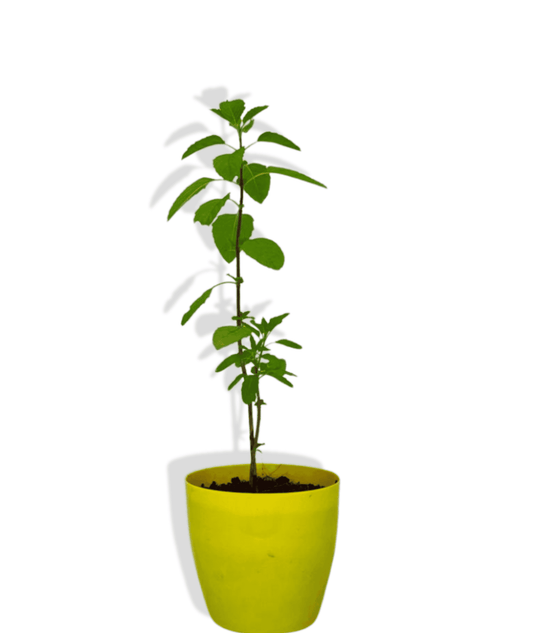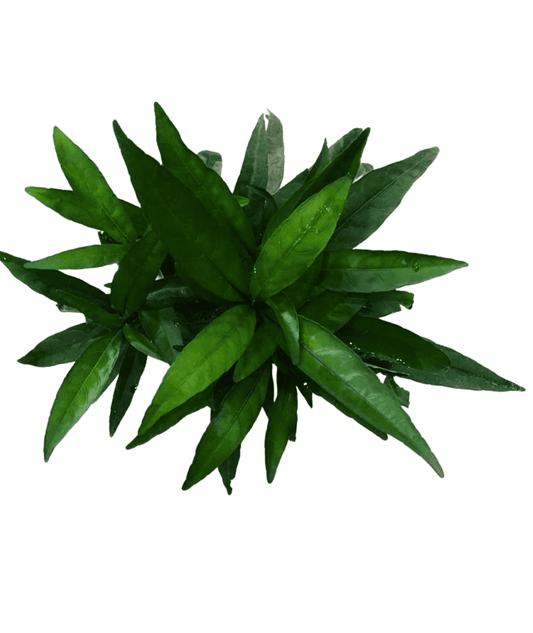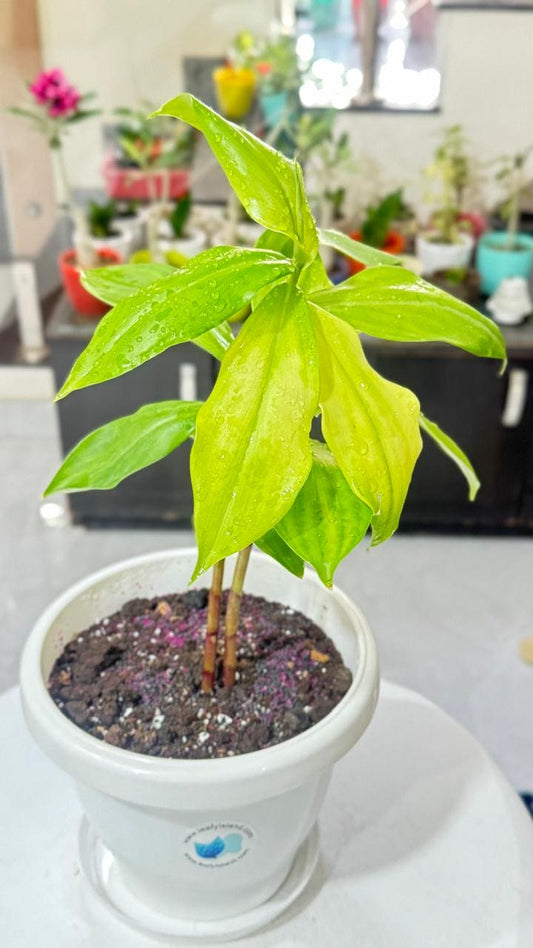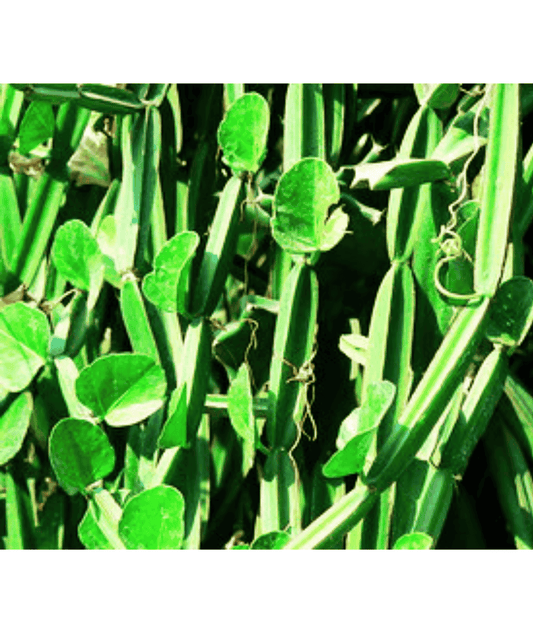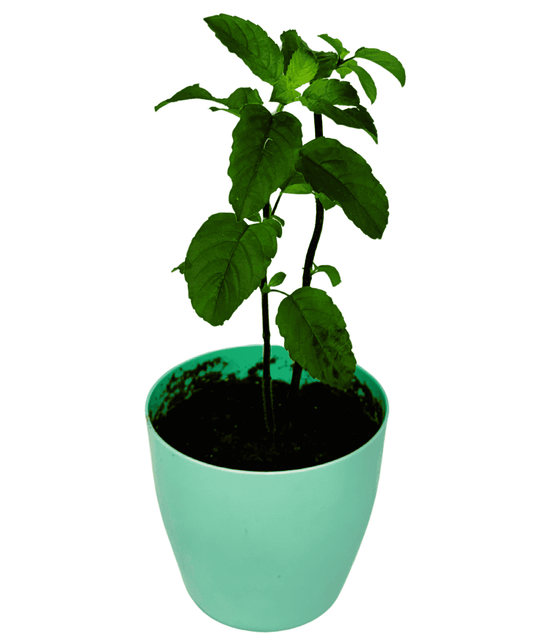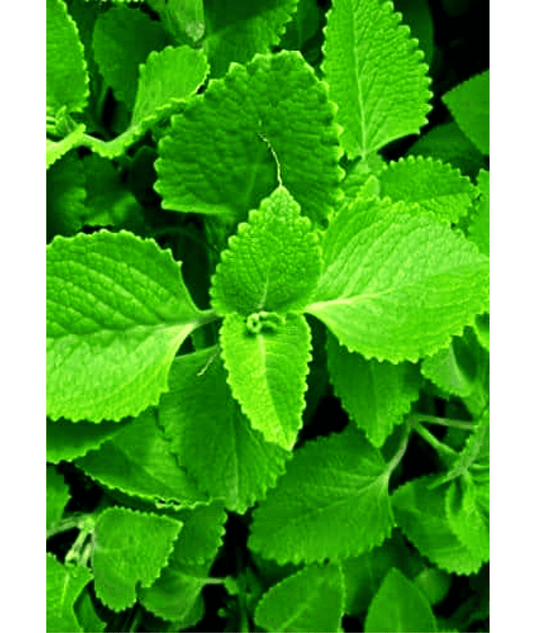Rama Tulsi - Medicinal & Auspicious Plant
Rama Tulsi - Medicinal & Auspicious Plant
Couldn't load pickup availability
Discover the Magic of Rama Tulsi: Your Sacred Herb of Health and Harmony! 🌿✨
Rama Tulsi, or Ocimum sanctum, is more than just a plant—it's a revered symbol of spirituality, wellness, and culinary delight. Widely celebrated in Hinduism, this holy basil offers a treasure trove of benefits that go beyond its spiritual roots.
Why You’ll Love Rama Tulsi:
🌟 Spiritual Essence: Embrace the divine! Rama Tulsi is a sacred plant, often found in Hindu homes, believed to be an incarnation of Goddess Tulsi and closely associated with Lord Vishnu.
🌱 Healing Powers: This herbal wonder is your go-to for natural wellness. Known for its antibacterial, antiviral, and adaptogenic properties, Rama Tulsi supports your body’s ability to handle stress and stay balanced.
🍃 Aromatic Delight: Enjoy the sweet, refreshing fragrance of its bright green leaves. Perfect for infusing teas, creating soothing remedies, or adding a touch of natural aroma to your space.
🍲 Culinary Gem: Add a burst of flavor to your dishes! Rama Tulsi leaves enhance herbal teas, soups, and curries with their distinctive, fresh taste.
🌿 Easy Care: Grow your own herbal haven! Rama Tulsi thrives in warm climates but is versatile enough to be cultivated in pots or gardens, making it a breeze to nurture and enjoy.
🧘♀️ Traditional Wellness: An Ayurvedic favorite, Rama Tulsi tackles respiratory issues, digestive troubles, and stress with its powerful immunomodulatory and antioxidant benefits.
🍵 Rejuvenating Tea: Brew a calming cup of Rama Tulsi tea and experience its soothing, rejuvenating effects. Perfect for unwinding after a busy day.
🙏 Sacred Rituals: Integral to Hindu rituals, Rama Tulsi is offered to deities and used in purification ceremonies, bringing spiritual tranquility to your practices.
🌟 Adaptogenic Herb: This natural adaptogen helps your body adapt to stress and maintain harmony, supporting overall well-being.
🔬 Research Approved: Modern science backs up its ancient wisdom, revealing Rama Tulsi’s potential in managing stress, inflammation, and chronic conditions.
Transform your daily routine with Rama Tulsi—where spirituality meets wellness in every leaf! 🌿💫
The plant has FREE Delivery
The actual product may slightly differ from the image shown, as it is indicative. The plant's shape, design, number of leaves, and size depend on seasonal availability.
Please note that the received product may not precisely match the displayed image due to natural variations in plant growth and availability. Flower/ Petals and some leaves may drop during transport, but new leaves will sprout again within few days.
Plant Care: Upon receiving your live plants, it's essential to offer them water promptly to rejuvenate them after their journey. Position the plant in an area with indirect sunlight, allowing it to gradually regain its vitality.
Repotting Instructions: Once the plant has fully recovered, you may contemplate repotting it in nutrient-rich soil, either within its current decorative pot or a new one. Ensure the selected pot features adequate drainage holes to prevent overwatering, especially if the decorative pot lacks these holes.
